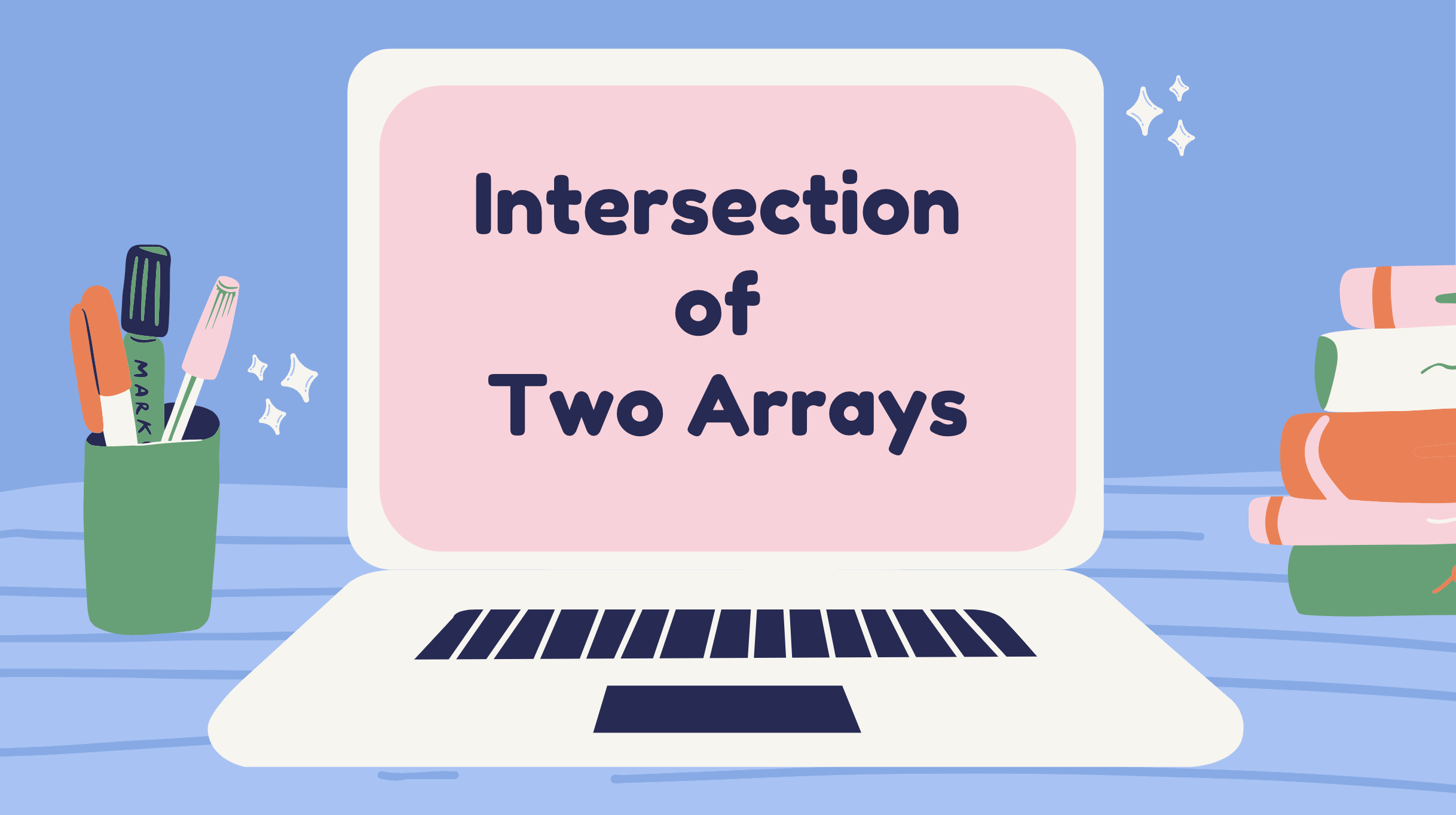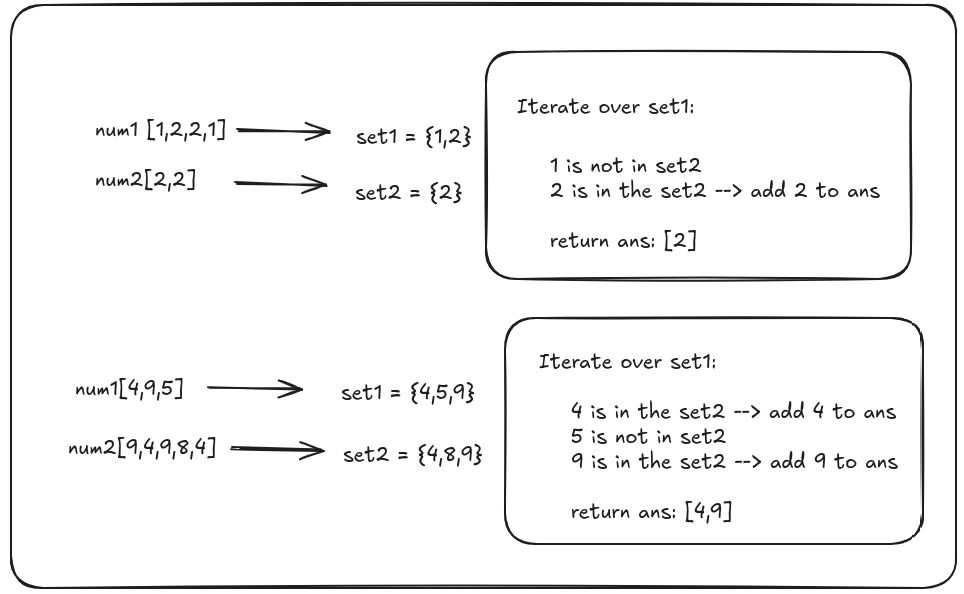Intersection of Two Arrays
 KUNAL
KUNAL2 min read

Level: Easy
Topics: Array, Hash Table, Two Pointers, Binary Search, Sorting
Given two integer arrays nums1 and nums2, return an array of their intersection. Each element in the result must be unique and you may return the result in any order.
Example 1:
Input: nums1 = [1,2,2,1], nums2 = [2,2]
Output: [2]
Example 2:
Input: nums1 = [4,9,5], nums2 = [9,4,9,8,4]
Output: [9,4]
Explanation: [4,9] is also accepted.
Constraints:
1 <= nums1.length, nums2.length <= 10000 <= nums1[i], nums2[i] <= 1000
Approach:

Solution:
class Solution {
public:
vector<int> intersection(vector<int>& nums1, vector<int>& nums2) {
// Create unordered sets to store unique elements from nums1 and nums2
unordered_set<int> set1(nums1.begin(), nums1.end());
unordered_set<int> set2(nums2.begin(), nums2.end());
//create a vector to store the intersection of set1 & set2
vector<int> ans;
// Iterate through each element in set1
for(const auto &num : set1) {
//check of current element from set1 exists in set2
if(set2.find(num) != set2.end()) {
//if the element exists in set2, add it to the intersection vector
ans.push_back(num);
}
}
//return the intersection vector
return ans;
}
};
Full Solution:
#include<iostream>
#include<unordered_set>
using namespace std;
vector<int> intersection(vector<int>& nums1, vector<int>& nums2) {
unordered_set<int> set1(nums1.begin(), nums1.end());
unordered_set<int> set2(nums2.begin(), nums2.end());
vector<int> ans;
for(const auto& num : set1) {
if(set2.find(num) != set1.end()) {
ans.push_back(num);
}
}
return ans;
}
int main() {
vector<int> nums1;
nums1.push_back(1);
nums1.push_back(2);
nums1.push_back(2);
nums1.push_back(1);
vector<int> nums2;
nums2.push_back(2);
nums2.push_back(2);
vector<int> ans = intersection(nums1, nums2);
cout << "Output: ";
for(int num : ans) {
cout << num << " ";
}
cout << endl;
return 0;
}
10
Subscribe to my newsletter
Read articles from KUNAL directly inside your inbox. Subscribe to the newsletter, and don't miss out.
Written by
